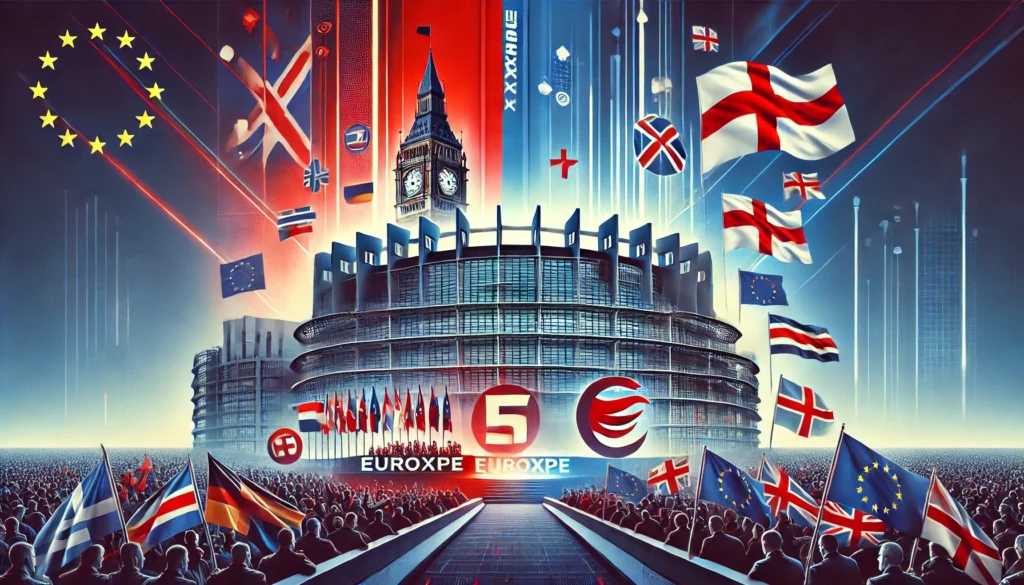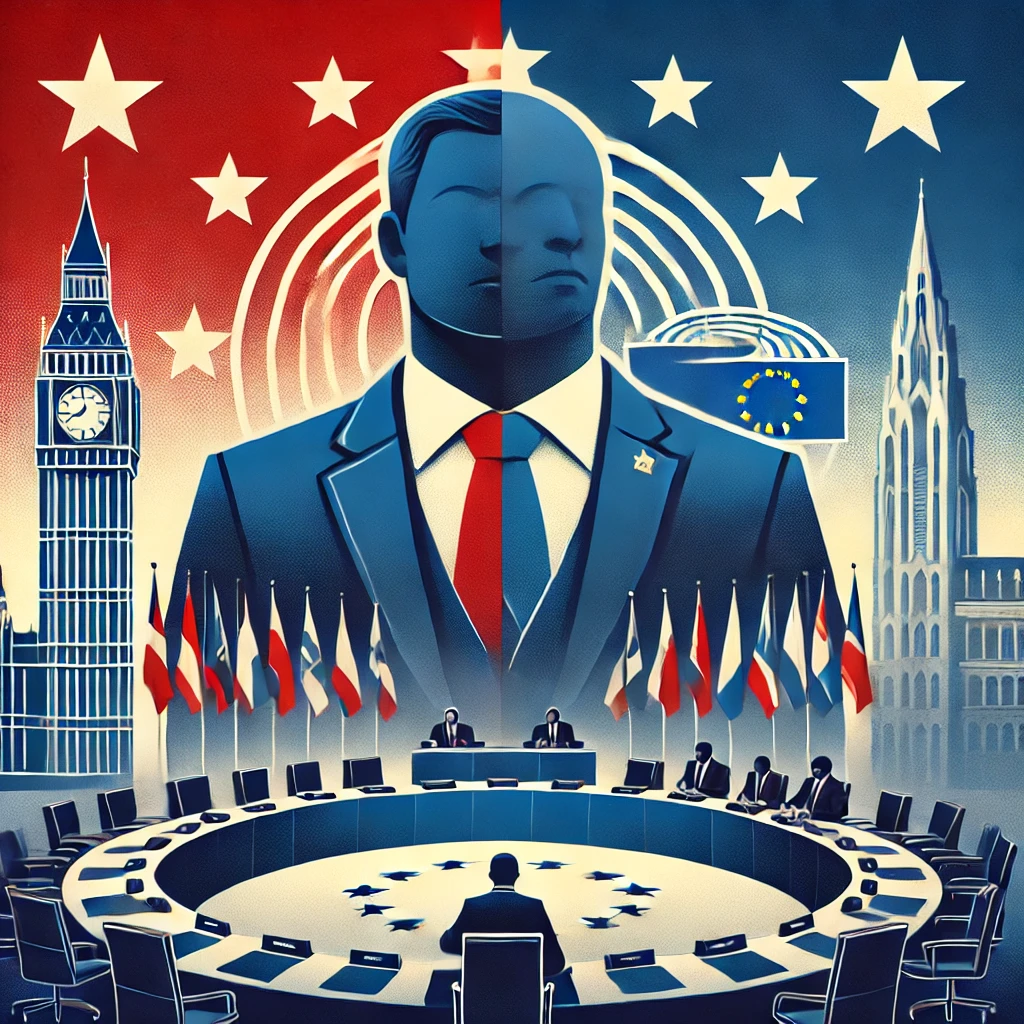For some time now, we have observed a growing trend in European Union countries where right-wing and even far-right parties are increasing their vote shares and coming to power. In traditionally social democratic and even left-leaning countries, centre-right parties are now taking control, and far-right parties are significantly boosting their influence in politics.
Countries such as Sweden, the Netherlands, Denmark, and Norway exemplify these developments. In Germany, the Social Democratic Party (SPD), once the strongest political force, saw its vote share dramatically decrease from 40.9% in the 1998 parliamentary elections to only 34.2% in 2005.
In the European Parliament elections held on 9 June 2024, the Christian Democratic Union (CDU/CSU) secured 30% of the votes, while the far-right party Alternative for Germany (AfD) garnered 15.9%. Chancellor Scholz’s SPD trailed behind the far-right, achieving just 13.9% of the vote, with the Greens obtaining 11.9%.
The recently established Wagenknecht Alliance Party, formed by a faction breaking away from the Left Party, managed to capture 6.2% of the votes. Current polls indicate that Chancellor Olaf Scholz’s SPD may secure only 14% in the upcoming 2025 parliamentary elections, with the Christian Democratic Union at 30% and the AfD overtaking the SPD with 16%.
Fragmentation of the Social Democratic Movement
As observed, since the 1998 elections, the SPD’s vote share has plummeted from 40.9% to around 14% today. The main reason for this decline is the alienation of the party’s social democratic and trade union base, initiated by Chancellor Schröder. Schröder’s assertion that “the working class in countries like Germany has transformed into the middle class” weakened the SPD’s ties with trade unions and its leftist worker base. This led to the resignation of thousands of SPD members and trade unionists, who then formed the Left Party (Die Linke) with a socialist faction in East Germany, causing a split in the social democratic movement.
Schröder’s policies also influenced other social democratic and leftist parties, notably in the UK under Tony Blair and in Scandinavian countries, contributing to a broader trend of social democratic parties losing elections or seeing significant reductions in their vote shares as they distanced themselves from leftist and unionist bases.
The Decline of Socialist Parties in Europe
In France, where socialist and communist parties once held significant power, Socialist Party candidate Mitterrand won the presidency from 1981 to 1995, and Hollande secured more than half the votes in the 2012 election. However, subsequent years saw a dramatic decline in support for socialists in France.
In the recent European Parliament elections, far-right leader Le Pen secured 31.6% of the vote, while President Macron and his centrist alliance received only 15.2%, prompting Macron to call for early elections. Similarly, in Belgium, the ruling Social Democratic Union suffered losses in the European Parliament elections, leading the Prime Minister to call for early elections. In Italy, Prime Minister Meloni’s far-right party increased its vote share to 28.76% in the European Parliament elections, while socialists secured 24.11%, making them the second-strongest party.
Reasons for the Far-Right Surge
Contrary to these European developments, left-wing former President Lula da Silva won the 2022 presidential election in Brazil, one of Latin America’s largest countries. Similarly, the Social Democratic Party candidate, C. Sheinbaum, recently won the presidential election in Mexico.
In Turkey, the Republican People’s Party (CHP) won the local elections on 31 March 2024, increasing its vote share from 25% to 37.57%, securing most of the major metropolitan municipalities.
The rise in support for far-right parties in Europe can be attributed to several factors:
- Uncontrolled Immigration: A significant factor in this surge is the ongoing immigration issue in Europe. The root cause of this migration lies in the policies of imperialist countries, particularly the economic, foreign trade, and internal policies imposed by the US and many Western European Union countries on underdeveloped nations. These policies often lead to internal and external exploitation, sometimes resulting in civil wars, as seen in Syria, Iraq, Afghanistan, Libya, and certain African countries.
- Economic and Social Impact of the Russia-Ukraine War: Since the Russia-Ukraine war began on 24 February 2022, the heavy pressure exerted by the US on NATO countries has led to significant financial issues. For instance, Germany, which had been sourcing oil and gas from Russia at reasonable prices, ceased these imports in January 2023. The war has also prompted Germany to increase its national defence budget by 100 billion euros. Additionally, Germany provided 43 billion euros in aid to Ukraine since the war began. The 2022-2023 period saw a 160 billion euro decline in Germany’s living standards, equating to 2,000 euros per capita. The government introduced a 300 billion euro aid package for families and employers due to the war. Moreover, 6 million Ukrainians were displaced, with over 1.1 million migrating to Germany, where they received special housing and social assistance privileges.
Similarities with Other Countries
Historically, German media have presented diverse political views. However, during the Russia-Ukraine war, the media, with few exceptions, adopted a pro-Ukraine and anti-Russia stance. Proposals and warnings regarding the war’s end are primarily voiced by leftist party officials, while the ruling coalition of Social Democrats, Greens, Liberals, and the opposition Christian Democratic Union advocate unconditional support for Ukraine.
Interestingly, the far-right AfD party aligns with Russia’s political stance, gaining support from those opposed to the war and its accompanying economic and social burdens. This trend mirrors the increasing popularity of far-right parties in other countries.
Radical Islamist Demonstrations
In Germany and other Western European countries, incidents of terrorism and violence involving radical Islamist groups further bolster far-right parties. Approximately 700 individuals from Islamic countries protested in Hamburg’s city centre in June, demanding the establishment of a “Caliphate.” A similar demonstration took place in Hamburg on 27 April 2024.
The public’s strong reaction to these radical Islamist and terrorist-supporting fanatic groups in Germany and other European countries naturally contributes to the rise in far-right party support.



